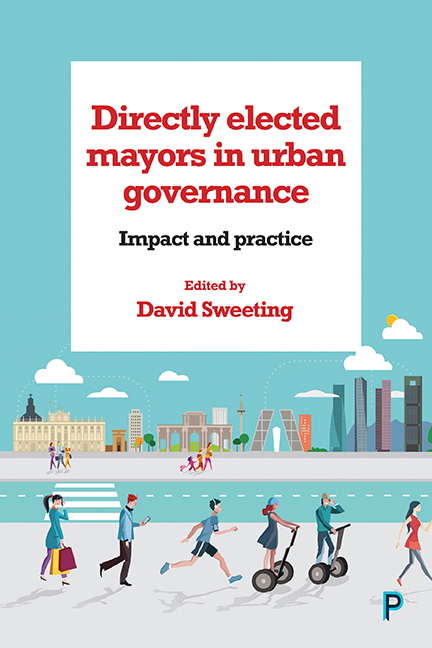fourteen - Directly elected mayors: a route to progressive urban leadership?
Published online by Cambridge University Press: 05 April 2022
Summary
Introduction
It is incontestable that place-less power has grown significantly in the past 30 years or so. By place-less power I mean the exercise of power by decision makers who are unconcerned about the impact of their decisions on communities living in particular places. Some writers take the view that the forces of globalisation have now completely undermined local democracy. They believe that the growth of multinational companies operating on a global basis is now so well developed that localities are best viewed as helpless victims in a global flow of events. Distant, unelected decision makers now determine city futures, not urban residents. This chapter questions this view and offers a fresh way of thinking about the future of urban leadership. The presentation draws on arguments that are set out at greater length elsewhere (Hambleton, 2015).
How does the fairly specific debate about the strengths and weaknesses of the directly elected mayor model of governance relate to this broader debate about place-based versus place-less power? On the one hand, some critics of the directly elected mayor model of urban governance fear that it gives an unwelcome boost to the influence of place-less decision makers. They argue that the model can make local government institutions vulnerable to international business pressures, certainly more vulnerable than collective models of civic leadership. This is because, they claim, too much power is concentrated in the hands of one individual, and these individuals may find it very difficult to resist the demands of powerful economic actors. On the other hand, enthusiasts for the directly elected mayor model claim that the opposite is true. They argue that, by granting significant political legitimacy to a single person, via a process of direct election, the model bolsters the place-based power of the locality. A progressive directly elected mayor, so the argument goes, is well placed to take on place-less power and advance the causes of social and environmental justice in the city.
In this chapter I offer a contribution to this debate. In particular, I explore whether the directly elected mayor model of governance can contribute to progressive policy making. In this context I am using the word ‘progressive’ to mean the active implementation of policies and practices designed to move away from exploitation of people and the planet.
- Type
- Chapter
- Information
- Directly Elected Mayors in Urban GovernanceImpact and Practice, pp. 243 - 264Publisher: Bristol University PressPrint publication year: 2017

